Contributor notes:
Jill Allison received a Ph.D. in Anthropology from Memorial University of Newfoundland, where she is currently the Global Health Coordinator in the Faculty of Medicine. Her work in medical anthropology merges her experiences as a nurse with an academic interest in medical institutions, technology, global health and health and social justice. Her research interests include medicalization of reproductive health, health of underserved and marginalized populations, relations of power and structural inequalities in health care, and gender and health.
Faith Balisch is an Associate Professor in the Department of English Language and Literature at Memorial University. Her primary research area is Canadian humour and satire with particular interests in the nineteenth-century and in Canadian women’s humour. Her publications include papers on eighteenth-century Canadian humour, the nineteenth-century romance as written by women in the Maritimes, and the humour of Robertson Davies and Lynn Johnston, among others. She is currently working on a history of women’s humour in Canada and an anthology of Canadian women’s writings about war beginning with the American Revolution.
Valerie Burton is a Professor of History at Memorial University and is currently the Academic Director of the University’s “First Year Success” Program. Her most recent publication is a Signs symposium, “Fish/Wives.” As co-editor of Changing Places she continues the interest in collaborative projects using feminist methodologies that was important to her when, as the Memorial University’s Women’s Studies Program Graduate Coordinator and Speakers’ Series Chair, she first met several of the collection’s authors.
Danielle Devereaux graduated with a Master of Women’s Studies degree from Memorial University of Newfoundland and Labrador in 2005. Since then she has worked as a sessional instructor in Women’s Studies, an organic farmer, and a freelance writer and editor. Her poetry has appeared in Arc, The Fiddlehead, Riddle Fence, QuArc, and The Best Canadian Poetry in English 2011 (Tightrope Books). An alumna of the Banff Writing Studio, her poetry manuscript-in-progress was shortlisted for the 2009 Fresh Fish Award for Emerging Writers. Cardiogram, a limited edition chapbook of her poems, has been published by Baseline Press. Danielle currently works in research communications at Memorial University.
Sonya Corbin Dwyer is Professor of Psychology at Grenfell Campus, Memorial University of Newfoundland in Corner Brook, where she teaches contemporary issues in personality, the psychology of education, psychotherapy, and the psychology of women. Her current research includes cross-cultural post-secondary teaching and transnational adoption. She recently returned from China where she taught graduate students at Jilin University for a semester. Sonya became a mother after she received tenure and promotion to associate professor.
Pauline Greenhill has been Professor of Women’s and Gender Studies at the University of Winnipeg since 1996. Her recent books include Transgressive Tales: Queering the Grimms (Kay Turner, co-editor, Wayne State University Press, 2012); Make The Night Hideous: Four English-Canadian Charivaris (University of Toronto Press, 2010); Fairy Tale Films: Visions of Ambiguity (Sidney Eve Matrix, co-editor, Utah State University Press, 2010). She has published in scholarly journals including Signs; parallax; Theoretical Criminology; Marvels & Tales; and Resources for Feminist Research.
Jean Guthrie retired in 2007 from Memorial University of Newfoundland, where she taught rhetoric and composition in the Department of English and contributed to the translation of Alciato’s emblems for the Memorial University Alciato Web Site. She served as Coordinator, First Year English; Associate Director, General Studies; Associate Dean, Faculty of Arts; Coordinator, Graduate Program in Teaching; Coordinator, Women’s Studies. She was awarded the President’s Award for Distinguished Teaching (Memorial 2002) and the Anne-Marie MacKinnon Award for Educational Leadership (Association of Atlantic Universities 2004).
Willeen Keough is the Chair of Gender, Sexuality, and Women’s Studies and an Associate Professor of History at Simon Fraser University. Recent publications include “Contested Terrains: Ethnic and Gendered Spaces in the Harbour Grace Affray” in the Canadian Historical Review, “(Re-)telling Newfoundland Sealing Masculinity: Narrative and Counter-narrative” in the Journal for the Canadian Historical Society, and “Unpacking the Discursive Irish Woman Immigrant in Eighteenth- and Nineteenth-Century Newfoundland” in the Irish Studies Review. Her co-authored textbook (with Lara Campbell), Gender History: Canadian Perspectives, has just been published with Oxford University Press. She is also working on a sshrc-funded book-length project tentatively titled “Seal Wars: Conflicting Masculinities at the Labrador Front.”
Kathleen Lahey is Professor and Queen’s National Scholar in the Faculty of Law and Co-director of Feminist Legal Studies at Queen’s University in Ontario. She specializes in matters of women and taxation, equality law, and the gender analysis of poverty. Kathleen has served on the Ontario Fair Tax Commission, the Law Reform Commission of Canada Advisory Panel on Adult Relationships, and the Ontario Advisory Council on Women’s Issues, as well as participating in equality cases brought under the Canadian Charter of Rights and Freedoms. She is the author of numerous papers and studies on women and fiscal policy, including Women and Fiscal Equality (2010), and was the founding editor of the Canadian Journal of Women and the Law.
Gloria Montano holds a bachelor of science in electrical engineering from the University of Texas at El Paso and a master of education from Memorial University of Newfoundland. She has held administrative and academic staff positions at Memorial University, directed a national service-learning program in the U.S., and has over twenty years of engineering and management experience at high tech companies in the Silicon Valley. Additionally, Gloria has a long history of working with organizations dedicated to diversifying participation in engineering and science, most notably Women in Science and Engineering Newfoundland and Labrador and the Society of Women Engineers.
Christine Overall is a Professor of Philosophy and holds a University Research Chair at Queen’s University, Kingston. She has held visiting positions at the University of Waterloo (Ontario), Mount Saint Vincent University (Nova Scotia), and, most recently, Kwansei Gakuin University (Japan). Her research and teaching are in feminist philosophy, applied ethics, philosophy of religion, and philosophy of education. She is the editor or co-editor of four books and the author of six. Her most recent book, Why Have Children? The Ethical Debate, was published by mit Press in 2012.
Ruth Perry, an authority on eighteenth-century British literature and culture, was the founding Director of the Women’s Studies program at mit, where she is currently the Ann Fetter Friedlaender Professor of Humanities. Past President of the American Society for Eighteenth-Century Studies and co-founder of the Boston Graduate Consortium of Women’s Studies, her most recent book is Novel Relations; The Transformation of Kinship in English Literature and Culture 1748-1818. Her current project is a biography of Anna Gordon, an eighteenth-century Scotswoman whose repertoire of ballads is the earliest unique source of these magnificent narrative songs.
Marie Wadden is a radio producer with the Canadian Broadcasting Corporation, and the author of two books. Nitassinan, the Innu Struggle to Reclaim their Homeland was published in 1991 and won the Edna Staebler Award for Creative Non-Fiction. Where the Pavement Ends, the Aboriginal Recovery Movement, and the Urgent Need for Reconciliation was published in 2008, and nominated for the Winterset Award, and the Shaughnessy Cohen award for political writing. She lives in St. John’s.

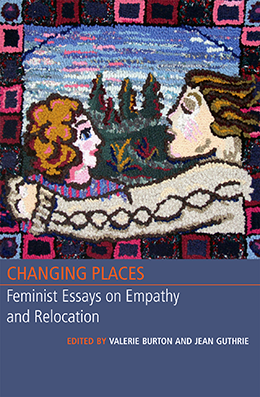

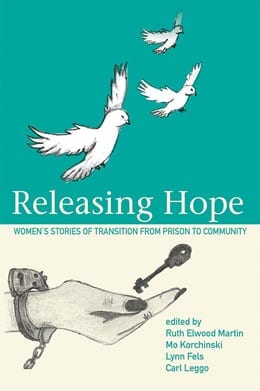
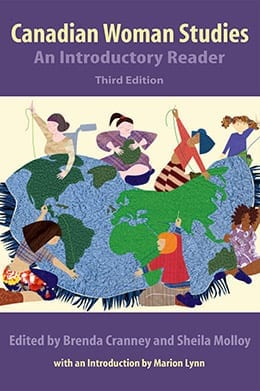
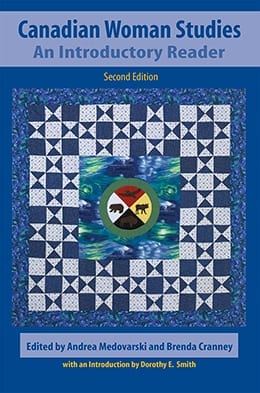
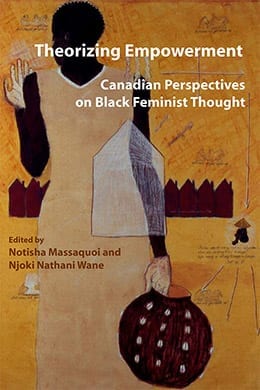
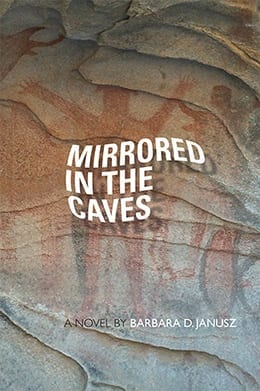
InannaWebmaster –
Strangers and Strange Lands: an excerpt from the review
reviewed by Alana Fletcher
Asian Canadian Critique Beyond the Nation. Spec. issue of Canadian Literature 227
(Winter 2015): 160-61
https://canlit.ca/article/strangers-and-strange-lands/
In their introduction to the 2014 edited collection Changing Places, editors Valerie Burton and Jean Guthrie note that the text is intended primarily for use in Women’s and Gender Studies classrooms. Bringing together contributions from eleven women of varied disciplines and career stages on topics ranging from motherhood and infertility to addiction treatment to university life, the collection indeed provides a valuable resource for students of Women’s and Gender Studies, especially upper-year undergraduate students seeking models of gendered analyses of varied cultural phenomena. Standout essays include Jill Allison’s sensitive exploration of the way infertility is negotiated in largely family-centric, Catholic Ireland, including such coping tools as funerary Masses for unconceived children, and Pauline Greenhill’s novel analysis of Newfoundland folk songs for their imaginative inhabitations of transgender identity.
The collection’s pedagogical commitment, the editors continue in the intro, prompts their adoption of “empathy as a practical and theoretical proposition” that holds the topically-varied collected essays together under the umbrella of deciphering “how evolving disciplinary practices overlap with knowing the world empathetically.” Most of the introduction apart from the chapter descriptions focuses on defining and troubling definitions of empathy, affect, and emotion, along with their naturalizations as feminine traits. The essays themselves, however, engage little with empathy; several do not mention the concept at all while others appear to have tacked this keyword on as an afterthought (as in the isolated statement in Greenhill’s essay that imagination is “a necessary precursor to empathy” or in Christine Overall’s observation when discussing gender oppression in universities that oppressive institutions lack empathy). This is more a general collection of feminist essays about the ongoing need for feminism, equal opportunity action, and gender troubling—especially within the university—than a collection about feminist perspectives on and engagements of empathy; this near-mislabelling, though, does not discount the value of the essays gathered here, which provide a prime example of both the strength of today’s Canadian feminist scholarship and its necessity. The straightforward style the editors have imposed on each essay makes complex problems easily understandable (while at times also resulting in too-abrupt transitions or too little support for claims), and the issues discussed are universal despite the collection’s preoccupation with Newfoundland (a function of its emergence from the Memorial University of Newfoundland’s Women’s Studies Speakers’ Series).